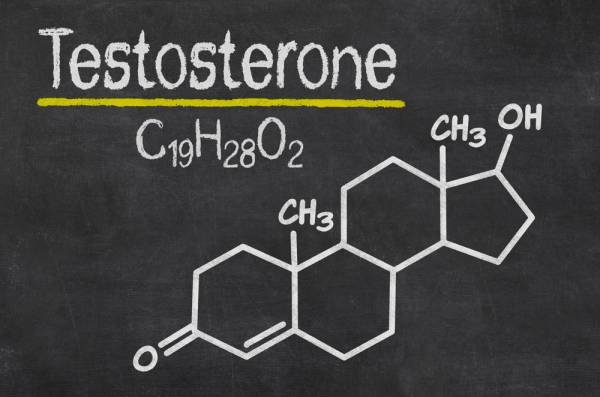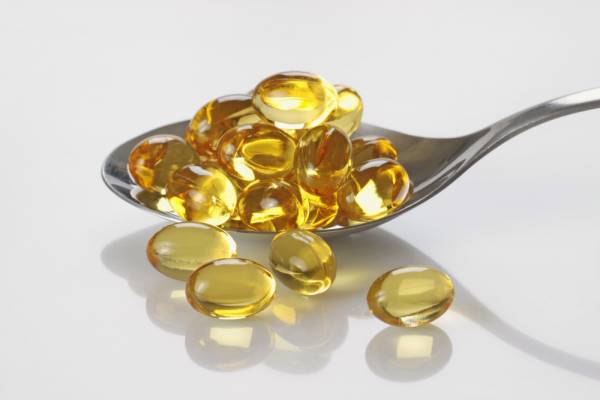Whether we are competitive athletes, weekend warriors, or looking to lose a couple of pounds, we want the fastest route to our goals possible. This drive for a quick fix gave rise to the nutritional supplement market. This industry made over $30 billion in 2012 and that number is expected to double to $60 billion by 2021.
This includes all the weight-loss supplements and protein shakes that we and far too many of our friends have tried over time. But none of these magical pills ever deliver on their promises and we end up flushing our hard-earned dollars down the toilet. Let’s be real for a minute. If any one of these supplements truly delivered on their promises, don’t you think everyone would be buying that one magical weight-loss solution?
RELATED: Science Says: Weight Loss Supplements Do NOT Work
But guess what? There is a magical solution to health and sports performance that everyone should be taking. This solution is vitamin D. It can help us lose those unwanted pounds, as well as build new lean muscle. Here’s the science behind the greatest sports supplement you should be taking.
Vitamin D for Performance
Here in the Northern Hemisphere, we are entering the months with the least amount of sunlight. This is problematic for our vitamin D levels, as the sun is our greatest source for this crucial vitamin. But even when we have plentiful sunshine we are often not getting outside enough. Some studies suggest nearly 75% of the American population is deficient in vitamin D.
RELATED: Vitamin D: Is Sunlight Enough?
We have all heard about the health benefits of vitamin D, such as increased immunity, cardiovascular health, and protection against cancers, including skin cancer. What many people do not realize is vitamin D plays a critical role in weight loss and performance enhancement.
“Some studies suggest nearly 75% of the American population is deficient in vitamin D.”
A meta-analysis performed in 2011 looked at vitamin D levels and their effects on strength gains and balance. These studies were performed on adults greater than sixty years of age. Subjects were given vitamin D supplementation without any exercise intervention. The authors concluded their study by stating a daily supplement of 800 to 1,000IU had a positive effect on strength and balance.
The reason may be due to vitamin D’s role in testosterone production. Testosterone is one of our major anabolic hormones and its levels correlates directly with vitamin D levels. There are actually vitamin D receptor sites in the male reproductive tract.

Another study looked at 200 healthy (non-diabetic with no other diagnosed health issues), but overweight males and their testosterone levels in regards to their vitamin D levels. Researchers concluded a daily dose of 3,332IU of vitamin D led to an increase in testosterone by approximately 20% over a twelve-month period. Researchers believe this is because vitamin D may block the conversion of testosterone to estrogen and it may also increase the sensitivity of the vitamin D receptors.
RELATED: 4 Things to Naturally Increase Your Testosterone
Vitamin D for Weight Loss
Vitamin D also plays a critical role in weight loss. Research suggests that vitamin D levels below 50 nmol/L increase your risk for developing type 2 diabetes. This is due to the role vitamin D plays in glucose metabolism. In fact, vitamin D may play a critical role in insulin sensitivity and even have a direct impact on the pancreatic beta cells.
Research is a bit contradictory here, but the majority of the studies show an increase in insulin sensitivity with the increase in serum vitamin D levels. Some factors that may lead to contradictory data could be the length of the trial, type of supplement used, and the control and research groups.
“Vitamin D also plays a critical role in weight loss. Research suggests that vitamin D levels below 50 nmol/L increase your risk for developing type 2 diabetes.”
One proposed mechanism for vitamin D increasing insulin sensitivity is its role in suppressing parathyroid hormone. In fact, the studies that looked at vitamin D alone without assessing parathyroid hormone may explain the contradictory results among the existing research. The people demonstrating increased parathyroid hormone are the ones with altered glucose metabolism and those who may benefit from vitamin D supplementation.

A Guide to Vitamin D Levels
When starting on your journey to lose weight or increase performance, do not spend your hard-earned cash on supplements that do not deliver. The only supplement you may need to go along with your smart exercise and nutritional plan is vitamin D.
RELATED: Are You Sure You’re Getting Enough Vitamin D?
You should get your vitamin D levels checked twice per year and then supplement accordingly. Your levels should be between 100 to 150nmol/L ,or if your lab uses ng/ml it should be between 40 to 60ng/ml. This will assure we have adequate hormones to build muscle and proper metabolism of glucose to lose weight. The best part is you do not need to break the bank to yield vitamin D’s positive health benefits.
References:
1. Lite, J. “Vitamin D deficiency soars in the US, study says.” Scientific American 2009. Retrieved on January 4, 2015.
2. Muir, SW. et al., “Effect of vitamin D supplementation on muscle strength, gait and balance in older adults: a systematic review and meta-analysis.” Journal of the American Geriatrics Society (2011). Retrieved on January 4, 2015.
3. Pilz, S, et.al., “Effect of vitamin D supplementation on testosterone levels in men.” Hormone and Metabolic Research 2011. Retrieved on January 4, 2015.
4. Teegarden, D. et al. “Vitamin D: emerging new roles in insulin sensitivity.” Nutrition Research and Reviews 2009. Retrieved on January 4, 2015.
5. Kramer, C., et.al., “Prospective Associations of Vitamin D Status With β-Cell Function, Insulin Sensitivity, and Glycemia: The Impact of Parathyroid Hormone Status” Diabetes 2014. Retrieved on January 4, 2015.
Photos courtesy of Shutterstock.






